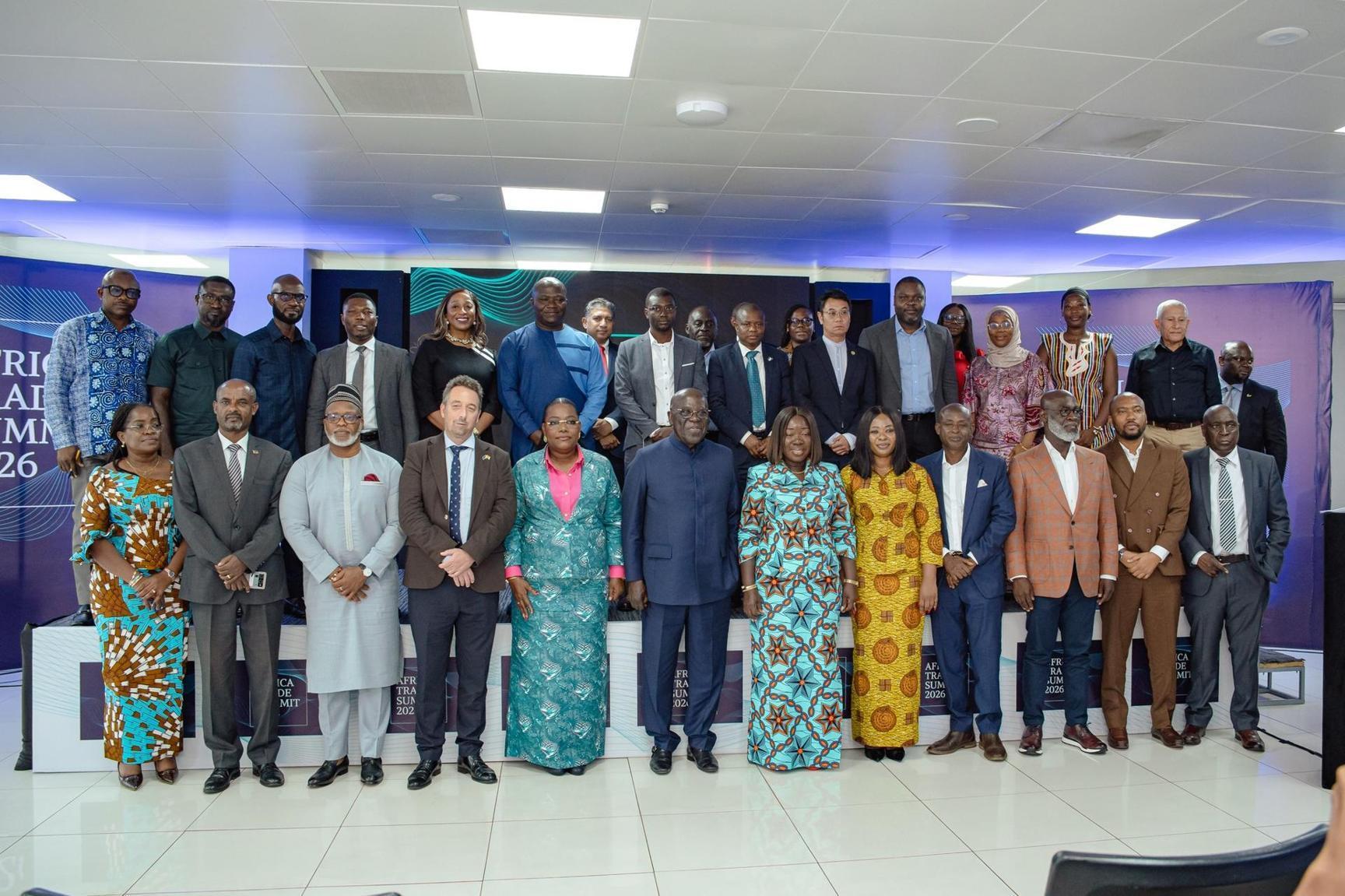Africa-Press – Ghana. In a move to break from decades of reliance on external aid and foreign credit, African leaders and private sector players have been charged to self-finance the continent’s industrial transformation, signalling a historic shift toward economic sovereignty.
The call was made at the launch of the Africa Trade Summit 2026, on the theme: “Financing Africa’s industrialisation: Developing Value Chains, Beneficiation and Market Integration,” under the auspices of the Africa Trade Chamber, and scheduled for 28th to 30th January 2026 in Accra.
The Summit will bring together Heads of State, policymakers, private sector leaders, development finance institutions, investors, SMEs and industry experts to discuss financing industrialisation, strengthening value chains and expanding intra-African trade.
Nana Oye Bampoe Addo, Deputy Chief of Staff,
speaking at the event, said the consistent shrinking of global aid and tightening credit markets have required that Africa created a new financing path to spur its industrial agenda.
“External aid is shrinking. Credit is tightening. The era of depending on others to finance Africa’s transformation is over. This summit symbolises Africa’s resolve to finance its own future, secure its own value chains, and build prosperity from within,” she stated.
She encouraged African governments to champion quality standards, support local content, and ensure our industries did not only meet, but exceeded global expectations, saying, “Ghana is ready to lead this new phase of African industrialisation.”
“The continent must secure its own value chains and build the capacity needed to support long-term development,” Nana Bampoe Addo said, and urged the private sector to provide the needed investment, initiative and innovation to set the continent on a path.
The Deputy Chief of Staff said Ghana’s commitment to self-financing was backed by concrete investment plan, including a US$30.8 billion infrastructure investment programme alongside a US$1.5 billion agricultural transformation initiative aimed at modernising farming and strengthening domestic supply chains.
Madam, Elizabeth Ofosu-Adjare, Minister of Trade, Agribusiness and Industry, called for tangible commitments among Africa’s development partners and financial institutions to support the continent with long-term industrial financing that strengthens value chains and productive capacity.
She said attaining industrialisation on the continent for economic transformation was non-negotiable, especially with the implementation of the African Continental Free Trade Area (AfCFTA).
She listed the government’s 24-Hour Economy initiative as the anchor of Ghana’s new economic direction, aimed at boosting productivity, creating
jobs, improving service efficiency, and positioning Ghana as a continuous-production hub.
She said the country has been championing a shift from many African countries exporting raw commodities only to import finished goods at higher prices, with President John Dramani Mahama, directing a new focus on productivity, competitiveness and job creation.
She encouraged all stakeholders – government and private sector alike, to use the Africa Trade Summit as a major platform to align investments with capital mobilisation, industrial priorities and policy reforms across the continent.
Sir Sam Jonah, Chair of the Advisory Board of the African Trade Chamber, said Africa’s financing transformation must be private sector-led, with Small and Medium-sized Enterprises (SMEs) and manufacturers becoming the primary engines of growth.
He pointed to successful industrialisation models in Singapore, South Korea, and China, noting that China for example, lifted 800 million people out of poverty by building domestic manufacturing capacity rather than relying on foreign financing for raw material exports.
He also highlighted emerging success stories, including Morocco’s automotive sector, Kenya’s fintech revolution, Ethiopia’s manufacturing zones, and Nigeria’s new refinery, but noted that they remain isolated achievements.
“What Africa needs from global partners is not charity, but collaboration – technology transfer, fair access to markets, and investment in regional value chains,” he said, cautioning that continuing the old model of exporting raw materials while importing finished products would only amount to “exporting jobs and importing poverty.”
“Transformation will not happen in ministry conference rooms. It happens in factories, in logistics hubs, and in businesses that take long-term bets. Our task is to connect these islands into a continental ecosystem. No African country can industrialise alone—not Ghana, not Nigeria, not Kenya,” Sir Sam Jonah said.
The 2026 Africa Trade Summit is expected to provide opportunities for participants to provide clear measures to enable the continent to move
beyond rhetoric by securing concrete financing commitments.
This would be tailored towards value-added industries across the continent, cross-border supply chain infrastructure projects, logistics and power generation facilities, technology transfer partnerships and regional manufacturing hubs under AfCFTA.
For More News And Analysis About Ghana Follow Africa-Press







